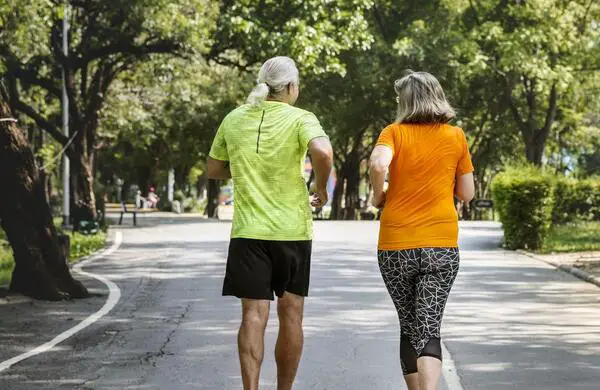
The Secret to Healthy Weight Loss for Seniors? Fighting Fat and Building Muscle
A guest post by Michael Longsdon of Elder Freedom
Have you ever tried dieting to slim down and lose weight? Maybe you’ve had some success, only to go back to old habits and have the weight return. Whatever experience you’ve had with weight loss in the past, it’s important to learn how seniors lose weight matters now, especially at this stage in life. That’s because you want to lose more than just pounds — you want to make sure you lose fat while also building muscle.
Why is it Hard for Seniors to Lose Weight?
Before you start trying to lose weight, it’s important to understand how weight loss for seniors has a different impact than it does on those who are younger. Weight loss can lead to all kinds of health benefits, including better blood pressure, cholesterol, and sugars, which translates into a lower risk of chronic disease. However, when you lose weight as a senior, there’s the risk of speeding up muscle and bone loss too. One solution is to do exercises that build muscle, and another part of the solution is to be conscientious about how you diet.
A healthy fat-loss diet for seniors should include lots of lean protein, calcium, and vitamin D because these nutrients help sustain muscles and bones. Of course, weight loss also requires cutting calories, but that doesn’t mean you have to starve yourself! When it comes to what you cut, it’s most important to focus on reducing empty calories. In fact, research from Wake Forest University has shown that a diet that’s low in calories but high in nutrient-dense, protein-rich foods helps seniors lose fat while maintaining muscle and bone quality.
What Should an Elderly Person Eat for Breakfast?
This research is good news for seniors who want to shed fat and live healthier, but it can still be challenging to make changes in your diet. First, turn healthy eating into a habit, rather than thinking of it as a diet that you do for a while and then stop. Second, it’s okay to have shortcuts! You will be far more successful with healthy eating when you find ways to make it easier.
Aim for Convenience
Grabbing fast food is quick and easy, but to switch things up and try shortcuts that make healthy food just as convenient. For example, if you like french fries, potatoes, or white rice as a side, consider swapping those out for brown rice and investing in a rice cooker to make preparing it a cinch. As Fitter Living notes, not only do rice cookers take the effort out of cooking, but one that’s good quality will also have a setting for brown rice.
Eat More of Your Healthy Favorites
Another tried and true technique for healthy eating, according to Forbes, is to keep good food where you can see it. Stock up on your favorite fresh fruits, and store them on your counter. Having these options out in plain sight is a simple way to trick yourself into eating them more! Again, the focus is on eating more of what you love, not what you have to cut out. Shape has even more ideas for easy ways to eat more of the healthy foods you enjoy. For example, they suggest going for yummy superfoods like avocados and berries.
Consider Intermittent Fasting
Intermittent fasting may be a solution for the elderly to lose weight for several reasons. As people age, their metabolism tends to slow down, making it more difficult to lose weight through traditional methods. Intermittent fasting has been shown to improve metabolic health, increase fat burning, and reduce insulin resistance, all of which can aid in weight loss. Additionally, intermittent fasting may help to reduce inflammation, which is associated with a variety of age-related health conditions. It's important for the elderly to discuss any dietary changes with their healthcare provider to ensure that they are appropriate for their individual needs and health status. Overall, intermittent fasting may be a helpful tool for the elderly to achieve weight loss and improve their overall health and with the help of a fast-tracker app it would be even easier to follow a new eating schedule.
Tips for Building Muscle
With all the hard work you put into eating right, don’t forget that fat fighting exercise is essential too. Seniors need both cardio exercise and strength training to build muscle, which will help even more with weight loss. The fact is that some loss of muscle tissue and bone density is a normal part of aging, but it’s easy to combat that loss with exercise.
Many people who want to get healthier think that weight loss is the ultimate goal. While losing weight certainly is a good goal, don’t forget that losing fat is what matters most. Not only will this goal make you healthier in your senior years, but it will also help prevent problems like falls while improving your sleep and overall quality of life.